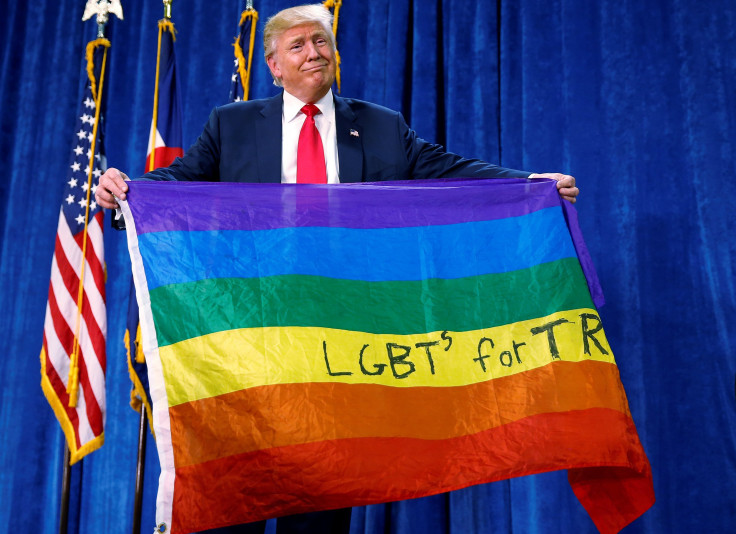LGBT Rights Under President Trump: Gay Rights Page Removed From White House Websites Moments After Inauguration

Minutes after Donald Trump was officially sworn in as president on Friday, the LGBT rights page was taken down from the White House and Departments of Labor websites. The site’s removal may draw alarm to the millions of lesbian, gay, bisexual and transgender citizens who might feel concerned about losing some of the protection granted to them under the Obama administration.
Previously, whitehouse.gov/lgbt provided information about legislative LBGT progress over the past eight years. It also offered support programs for the LGBT community such as "It Gets Better Project," which aimed at inspiring LGBT youth who may be facing discrimination and contemplating suicide.
It has been 77 minutes since Trump was sworn in and he has removed mention of LGBTQ people and protections from government websites. pic.twitter.com/ili2o7Xcfg
— Cole Ledford (@ColeLedford11) January 20, 2017
Now, the new page reads "Sign up for updates from President Donald J. Trump!" or "Sorry, the page you're looking for can't be found" next to the president's seal. All of the information about the LGBT community that could be found on the WhiteHouse.gov webpage during Obama’s presidency can now be accessed on ObamaWhiteHouse.gov.
Trump was called the “most pro-LGBT nominee in the history of the Republican party” in October by the Log Cabin Republicans, an organization that works with the Republican Party to ensure equal rights for members of the LGBT community in Washington, D.C.
Trump told “60 Minutes” in November that same-sex marriage was “settled” by the June 2015 Supreme Court decision in Obergefell v. Hodges. The 5-4 verdict guaranteed marriage for gay couples as a fundamental right.
“It’s law…I mean it’s done,” Trump said. "These cases have gone to the Supreme Court. They’ve been settled. And I’m fine with that.”
But Trump’s comments about same-sex marriage differ vastly from those previously made by Vice President Mike Pence, who signed an anti-LGTBQ “religious liberty” law in 2015 and supported “conversion therapy” as a member of Congress.
The “religious liberty” law allowed any individual or corporation to cite religious beliefs so they would legally be able to withhold serving same-sex couples.
© Copyright IBTimes 2025. All rights reserved.






















